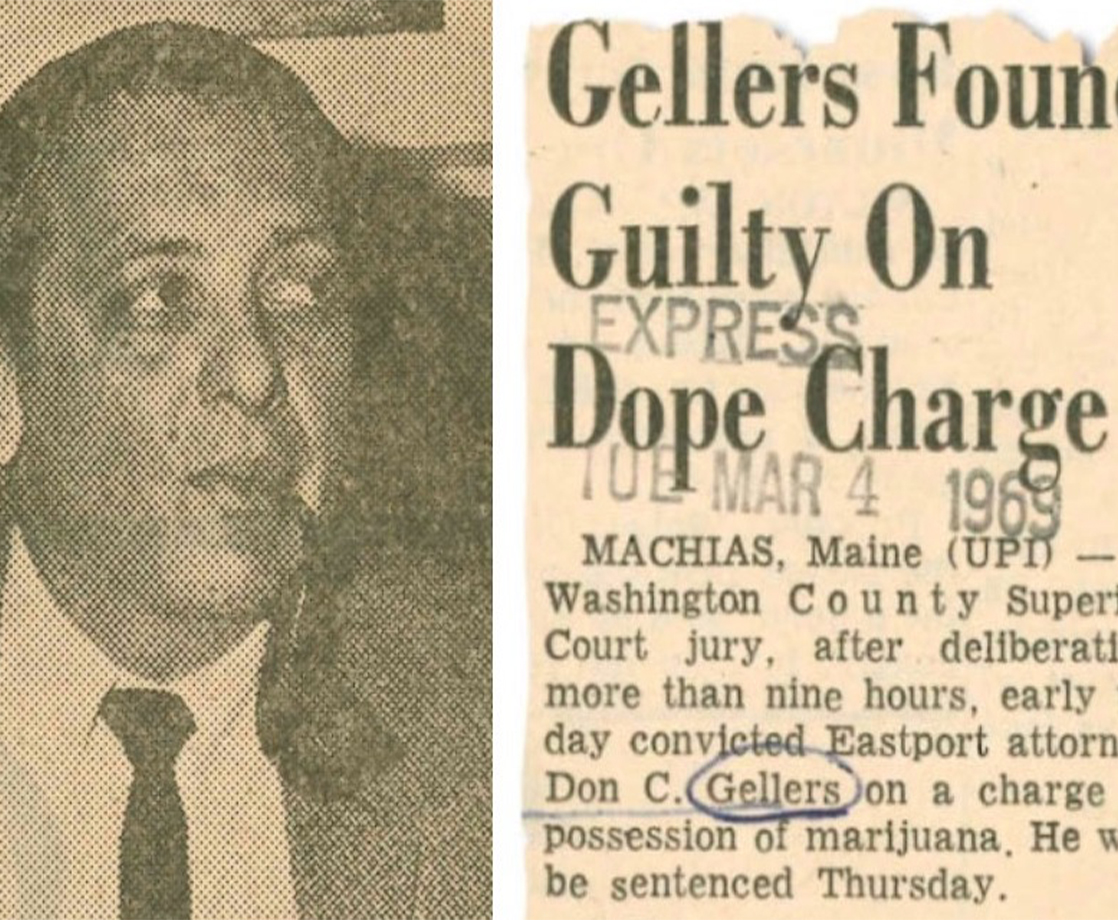Photo via
On Tuesday, Maine, in a historic first, granted a posthumous pardon for Don Gellers, an attorney who was arrested for pot possession five decades ago.
During a press conference, Governor Janet Mills said that Gellers’s pardon for minor pot offenses “was a long time coming.” She added, “There’s merit to the idea that he was singled out and basically targeted.”
The story behind Gellers’s arrest is complicated, but Governor Janet Mills’s decision to pardon him is not.
Gellers got busted for weed while he was defending a land claim on behalf of the Passamaquoddy tribe, which is indigenous to Maine and parts of Canada. Back in 1964, after nearly two centuries of territorial disputes and land grabs, Maine’s then-governor and attorney general allegedly conspired to force a construction project through what little territory the Passamaquoddy tribe continued to hold. Tribe members protested the project in 1968, but speaking out accomplished nothing. So, the tribe turned to an attorney, Don Gellers, to represent them in court.
Gellers planned to sue the state of Maine for $150 million under claims that Maine violated a 1794 treaty made with the tribe. Three days after he filed suit, police raided his home and found six joints, which was technically only a misdemeanor offense at the time. However, John Kelly, the state’s attorney general, charged him with felony offenses instead, which disbarred Gellers and ended his legal career.
After being denied several appeals and re-trials, Gellers fled to Israel, where he became a rabbi and fought in the 1973 Arab-Israeli War. Although his lawsuit against Maine never went through, his defense laid the groundwork for the Maine Indian Claims Settlement Act in 1980, which awarded $81.5 million to the state’s tribes, including the Passamaquoddy, to repurchase their lands stolen by the state.
“While this pardon cannot undo the many adverse consequences that this conviction had upon Mr. Gellers’ life, it can bestow formal forgiveness for his violation of law and remove the stigma of that conviction,” Gov. Mills said, according to the Associated Press.
Gellers passed away in 2014 from cancer, shortly after the Portland Press Herald ran a lengthy series called “Unsettled” about the conflicts faced by the Passamaquoddy tribe.
If Gellers had been raided by the police in Maine today, absolutely nothing would’ve happened to him. In 2009, the state decriminalized weed possession under 2.5 ounces. In 2016, the state legalized recreational marijuana by voter referendum.
“People even today are respectful for him being an advocate for native folks,” Passamaquoddy Vice Chief Darrell Newell said on Tuesday during the ceremony. “He was a warrior for the Passamaquoddy tribe.”
Follow Randy Robinson on Twitter











